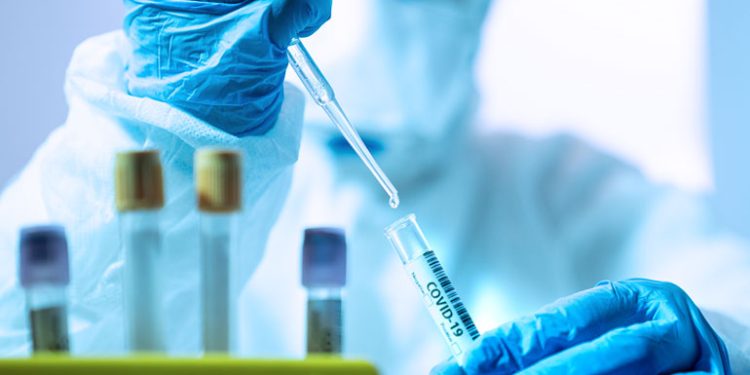Almost 3 years later, COVID-19 is no longer high on the agenda. Meanwhile, the problem remains relevant and life-threatening, especially for people in the risk group. ACT Fast. With the launch of the GET TESTED campaign in Georgia, Pfizer’s goal is to help talk more about COVID-19, the importance of timely testing and the means of getting treatment options.
According to the statistics of the World Health Organization (WHO), since the beginning of the global COVID-19 pandemic, more than 1.8 million cases of infection with the new coronavirus have been recorded in Georgia.
During the mentioned period, the disease killed more than 16 thousand people. Despite changes in disease dynamics, the COVID-19 pandemic is far from over. Specialists are especially worried about the fact that flu, cold and new coronavirus infection have the same symptoms. That is why it is necessary to carry out the test at the early stage of symptoms, in order to correctly diagnose the disease and start timely treatment.
Moreover, COVID-19 continues to pose a major threat to people at risk, for whom even mild symptoms can progress to serious illness that can lead to hospitalization, the need for intensive care, and potentially even death.
According to studies, the most vulnerable groups are the elderly (more than 81% of deaths caused by COVID-19 occurred in people over the age of 65) and people with chronic diseases such as: respiratory (e.g. chronic obstructive pulmonary disease (COPD) ), moderate and severe bronchial asthma, cystic fibrosis and others), cardiovascular, cerebrovascular, kidney, liver, hematological diseases, cancer, diabetes, obesity (BMI > 30kg/m2) and in which there is reduced immunity ( eg: transplanted organ, HIV/AIDS and others).
The high prevalence of non-communicable diseases in Georgia is particularly worrying, which in turn are risk factors for the spread of COVID-19. According to a study by the World Health Organization (WHO), about 37.7% of the population has high blood pressure and 33.2% is overweight. The second problem is the high rate of tobacco smokers (31%), which also has a negative effect on the course of illness with COVID-19.
“In our daily life, we constantly meet representatives of the risk group for whom the consequences caused by COVID-19 can turn out to be fatal. These are not only our grandparents, but also a huge number of chronically ill people, including people with cardiovascular disease, such as people with high blood pressure, which is especially common in our country. Therefore, it is our obligation to conduct a test for coronavirus infection at the first signs of symptoms of the disease, consult a doctor in time and, if necessary, provide treatment that will quickly stop the symptoms” – reminds us Nino Asatiani, President of the Association of Primary Health Care Development Promoters in Georgia.
ACT Fast started in December. The GET TESTED campaign in Georgia aims to remind people about the severity of the new coronavirus infection, the need for quick response in case of the first symptoms, and serves to raise awareness about the methods of treatment for COVID-19, especially for people in the risk group. Traditional media and social media activities will be held throughout the country for 3 months, where leading professionals working in the healthcare system will be involved.
“Because COVID-19 affects everyone differently, being in a high-risk group means that even mild symptoms can progress to severe disease that can lead to hospitalization and potentially even death. Knowing your risk status is an important step forward in protecting yourself and your loved ones from COVID-19. If you know you are at risk and think you have symptoms typical of COVID-19, get tested right away and talk to your doctor about possible treatment options. Quick action at such a time is critically important, because therapy should start from the very first days of infection,” says Zarina Kozakhmetova, Pfizer’s medical director in the Caucasus and Central Asia region.
If you have any symptoms typical of COVID-19, get tested right away and ask your doctor if you meet the criteria for treatment.
Learn more: www.ncdc.ge














